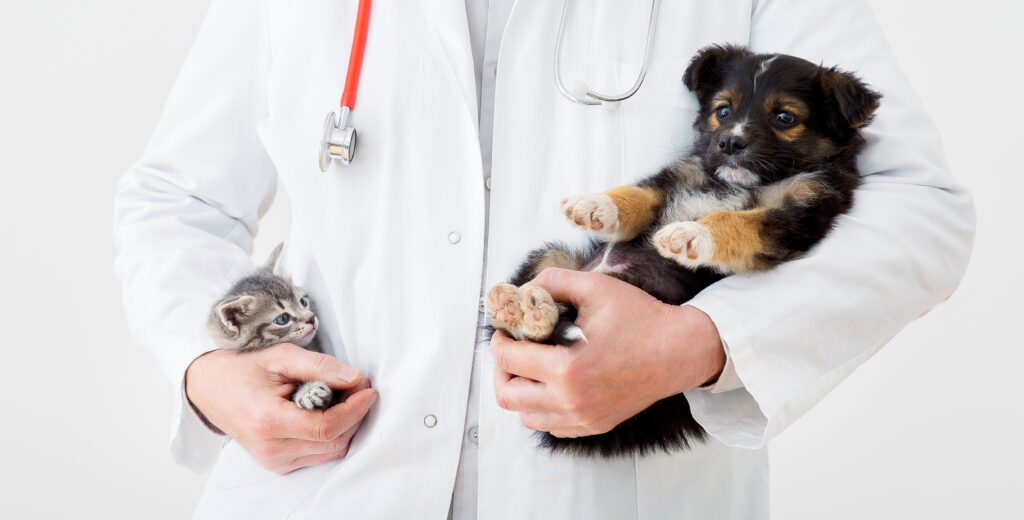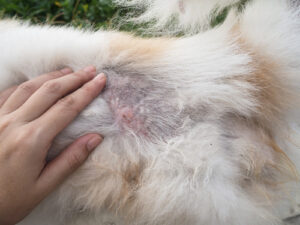As a pet owner, you play a vital role in ensuring the health and longevity of your beloved puppy or kitten. This is our guide on one of the most important steps in your pet’s journey: vaccinations. We’re here to provide you with essential information about the right time to start your pet’s vaccinations, the recommended schedule, and what to do if you’ve just welcomed an older dog into your family. If you have any concerns or need personalized advice, give Arvada Veterinary Hospital in Arvada, Colorado, a call at (303) 424-4439.
Starting Vaccinations: The First Step to a Healthy Life
Getting started with your new puppy or kitten’s vaccinations is a critical step on their path to a healthy and long life.
When to Begin?
Puppies and kittens are like little sponges, ready to absorb all the protection they can against diseases. For both puppies and kittens, the ideal time to start vaccinations is around 6 to 8 weeks of age. This timing is key as it’s the point when they are weaned from their mothers and start losing the antibodies they received from their mother’s milk. Without the natural antibodies they get from nursing, puppies and kittens are more vulnerable to disease. That’s why they need an external boost to their immune system.
The Importance of Timely Vaccination
Delaying vaccinations can leave your puppy or kitten exposed to various diseases, some of which can be life-threatening. Starting the vaccination process at the recommended time offers them the protection they need as they start exploring the world.
Some of the more serious disease risks for puppies and kittens include parvo, rabies, distemper, and feline leukemia.
Vaccination Schedules Recommended for Puppies and Kittens
Below are the general vaccination schedules and requirements for puppies and kittens. Occasionally, these may vary depending on the pet’s age, health condition, and medical history.
Puppies
For puppies, the vaccination schedule typically looks like this:
- 6-8 weeks: Start with the first dose of the DA2PP vaccine, which protects against distemper, adenovirus, parvovirus, and parainfluenza.
- 10-12 weeks: Administer the second dose of DA2PP.
- 16-18 weeks: Final dose of DA2PP, along with the rabies vaccine.
Additional vaccines may be given based on your pet’s health needs and lifestyle. Sometimes, puppies will also receive their Bordetella vaccine, Lyme vaccine, and lepto vaccine if they are at an increased risk for these diseases.
Kittens
Kittens have a similar schedule but with feline-formulated vaccines:
- 6-8 weeks: Start with the FVRCP vaccine, covering feline viral rhinotracheitis, calicivirus, and panleukopenia.
- 10-12 weeks: Second dose of FVRCP.
- 16-18 weeks: Final dose of FVRCP and the rabies vaccine.
The feline leukemia vaccine may also be given to protect your kitten. For older cats, this vaccine is usually reserved for indoor/outdoor cats. Strictly indoor cats are much less at risk for infection.
What If You’re Unsure of Your Pet’s Vaccination History?
Adopting an older dog or cat is a wonderful thing, but it often comes with uncertainties, especially regarding their vaccination history. If you’re unsure which vaccines your new pet has had, it’s essential to consult with your vet. They can conduct a health evaluation and determine the best course of action, which may involve giving boosters or holding off for a time and then vaccinating.
Your vet may recommend a series of catch-up vaccinations to ensure your dog is protected. It’s better to be safe and ensure your pet is fully vaccinated than to risk exposure to preventable diseases.
Update Your Pet’s Vaccinations Today
Vaccinating your puppy or kitten is the first step in a long, healthy life together. If you have any questions or need to schedule a vaccination appointment, please call Arvada Veterinary Hospital at (303) 424-4439. Our team is here to support you and your pet through every stage of their life. Timely vaccinations are a key part of your pet’s health journey, and we’re here to help every step of the way.





